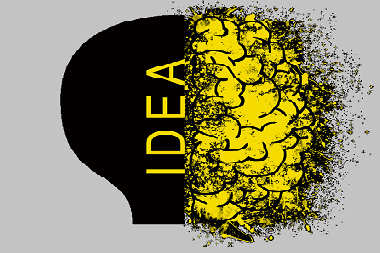Mental health problems >>>> Apophenia - what is it?
Apophenia - what is it?

Anyone who does not suffer from schizophrenic mental disorders or other pathologies of the mental sphere has a tendency to logical thinking to one degree or another. We naturally tend to build relationships, draw certain conclusions, and thus conduct our mental activity.
Giving meaning to any events, searching for relationships in cases where an explicit connection does not exist are manifestations of apophenia. Limited knowledge sometimes gives rise to the search and connection of significant events in the way that a person would like to see these connections.
For entertainment purposes (with violent imagination) or in order to conduct scientific observations and search for solutions, such relationships are appropriate, but there are cases of pathology when a person begins to deliberately search for coincidences in the set of events happening around him, to link logically incongruous events to each other. Then they speak of apophenia as a pathological condition and a precursor or symptom of painful conditions of the brain.
In healthy cases, apophenia results in a fascination with various pseudoscientific theories, in superstition. In painful cases, apophenia can harm a person and his environment, as it generates suspicion, anxiety, excessive sensitivity and distrust, and persecution mania.
Apophenia in its pathological manifestations can develop in old age due to natural aging of the brain and impaired brain functions. In earlier periods of time, apophenia can accompany endocrine changes in the body, hereditary, but not identified mental illness, can be the result of a nervous breakdown or prolonged stressful state.
Treatment of apophenia as a pathology involves the identification of the underlying disease that gave rise to this activity of brain activity. Non-pathological forms do not cure, but they do not exacerbate either. In such cases, there is a need to maintain balanced relationships in the family where a person prone to apophenia is located, to encourage his hobbies in applied sciences, and not theories, to develop and maintain hobbies related to needlework, to avoid stressful situations that can provoke this tendency.

Read

Read



























